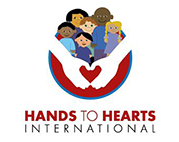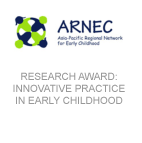International adoption is on the rise and has recently made front page news around the country. This topic is an easy target for making “right vs. wrong” judgments, but the issues are complex and lives literally hang in the balance.
It is time to look behind the sensationalized dramas and get real about the issues. Around the world, children are orphaned or abandoned due to AIDS and other diseases, political instability and conflict, the stigma of unwed motherhood, and extreme poverty. According to UNICEF, “While sub-Saharan Africa has the highest proportion of children who are orphans, the absolute number of orphans is much higher in Asia which has 87.6 million orphans in 2003.”
International adoptions are increasing for a multitude of reasons. Fewer babies are available for adoption in the US. American parents may fear that a mother can later change her mind and sue for the return of her baby. Others adopt internationally because they feel a deep connection to another country or for altruistic reasons. However, for the millions upon millions of orphaned children, less than 23,000 came to the US via international adoption in 2005.
Adoption in not the only solution. It is a drop in the bucket in addressing the crisis of orphans, but it is making a difference. Adoption — either locally or out of country — offers children opportunity. International adoption raises awareness and strengthens ties between cultures. More importantly, it allows a chance for survival. In India, children have to be turned down by native parents 3 times before being available for international adoption. This means that these children will NOT be adopted in country because of a medical condition, disability or because of their gender of skin color. Should they be banished to a life of institutionalization when a loving family is willing to endure rigorous and expensive efforts to unite them into their own family?
I have seen a child die in India because she had a complex medical condition. She could not get to a specialist (despite repeated and frantic trips to the hospital) because she was an “orphan.” Did her situation make her less of a “child” worthy of treatment? Her condition made it highly unlikely for her to have been chosen by a local family. But she could have been treated if she had been adopted by a family in the US or Europe.
The key factors that create orphanages – disease, conflict, social stigma, and extreme poverty – are the same reasons few locals are willing or able to implement a functional foster care system or to adopt these children. The children adopted overseas will not have another opportunity to escape a lifetime of institutionalization. Consider the HIV/AIDS pandemic in Africa: how many adults are left to take in children?
Russia is currently promoting a campaign to encourage women to have children and increase their sagging population growth. However, it is almost unheard of that an orphaned child would be adopted within their own country. Does the government figure in the roughly 100,000 children surviving in orphanages into their census?
The outcomes for the children being raised in orphanages and the society are profound. Consider this quote from the WHO: “institutionalization in early childhood increases the likelihood that impoverished children will grow into psychiatrically impaired and economically unproductive adults.”
Legitimate adoption provides a legally sanctioned and meticulously executed way for a child to escape the fate of being orphaned. Adoption also offers adoptive parents, either locally or abroad, the chance to build the family they have dreamed of. I have visited numerous orphanages. The ones that are able to afford to feed children healthy diets, to have needed heaters, who have enough staff to provide anything resembling nurturing care-giving are the ones who benefit from the small contributions made via adoptions.
Anti-international adoption activists like to muddy the waters between adoption and child-trafficking. Although there are unscrupulous individuals who are happy to benefit from the profit of baby selling, that is not the same as legal international adoption. These activists like to argue that children should not lose their heritage, religion or culture, but in all the orphanages I have visited I have yet to see a country’s “heritage, religion or culture” – an orphanage is no one’s culture!
It is time to debate how the world is going to address the crisis of orphaned and abandoned children. We must make orphanage care more humane, while seeking to eradicate the need for orphanages to exist. In the meantime, orphans are children, even babies, and they have the right to a family, a home and a culture.
Yes, there are gray areas in this issue, but to deny any child the chance to have a family is to be a purist who doesn’t have to live with the consequences of a lifetime of isolation and institutionalization.









